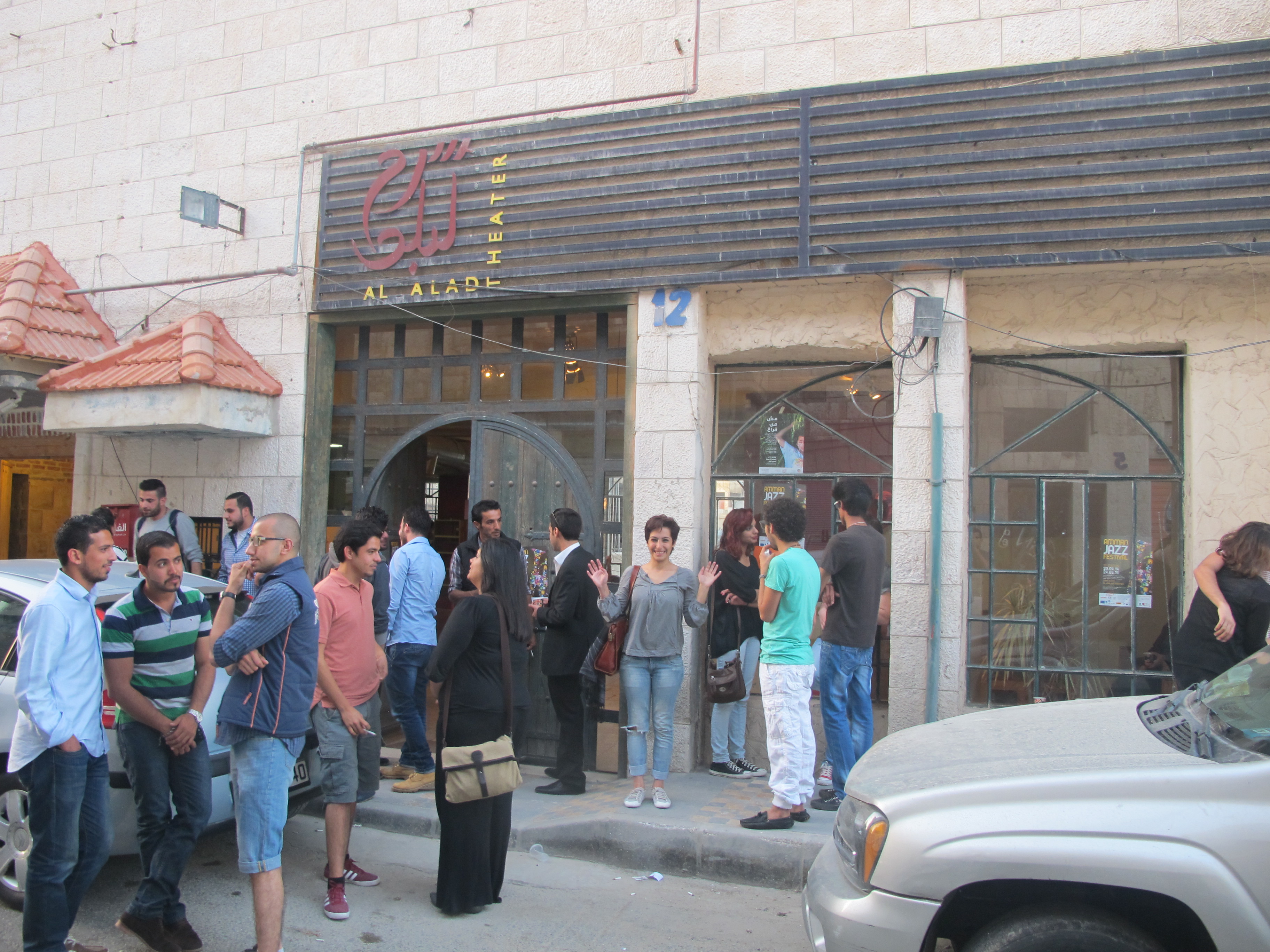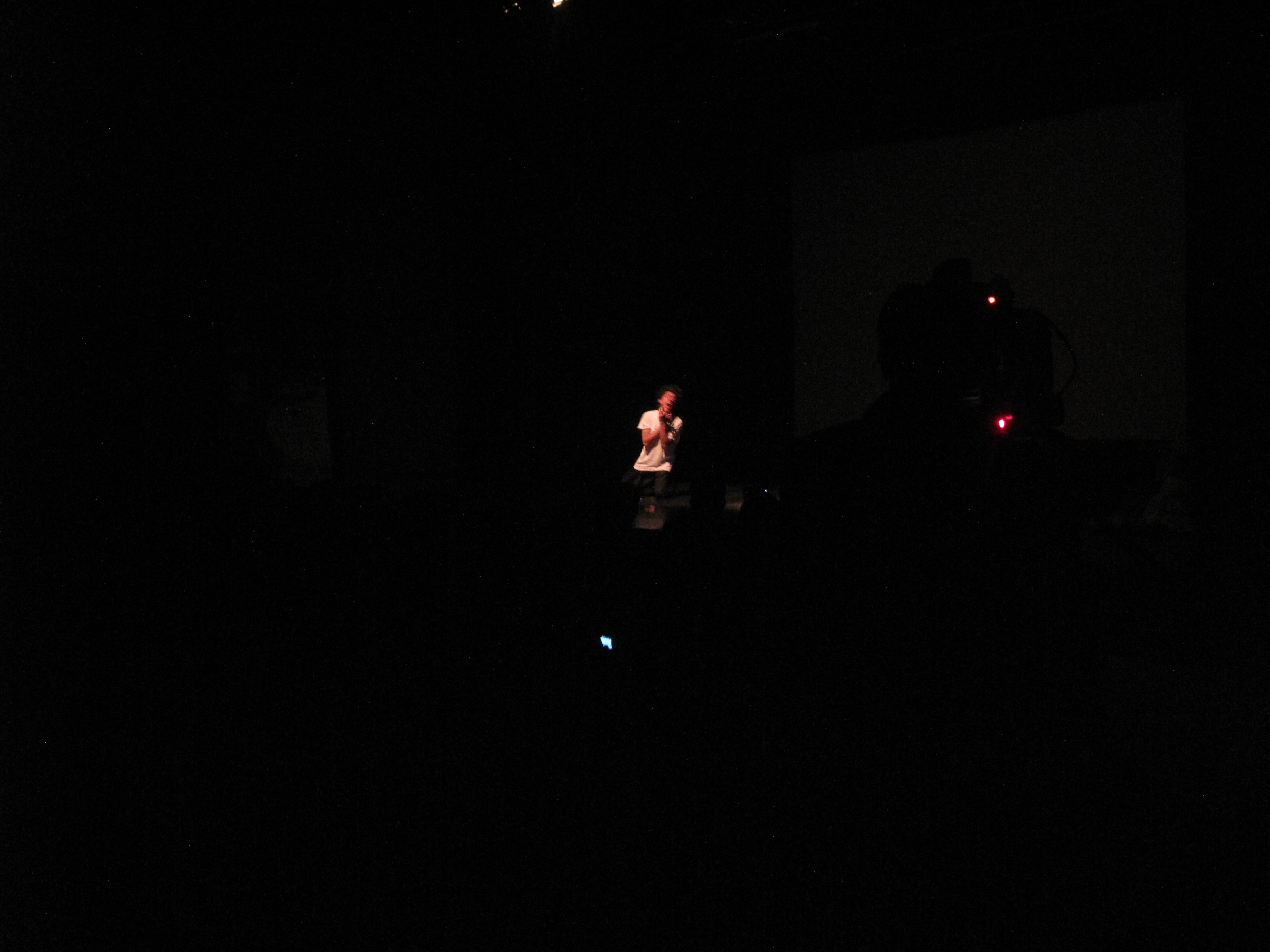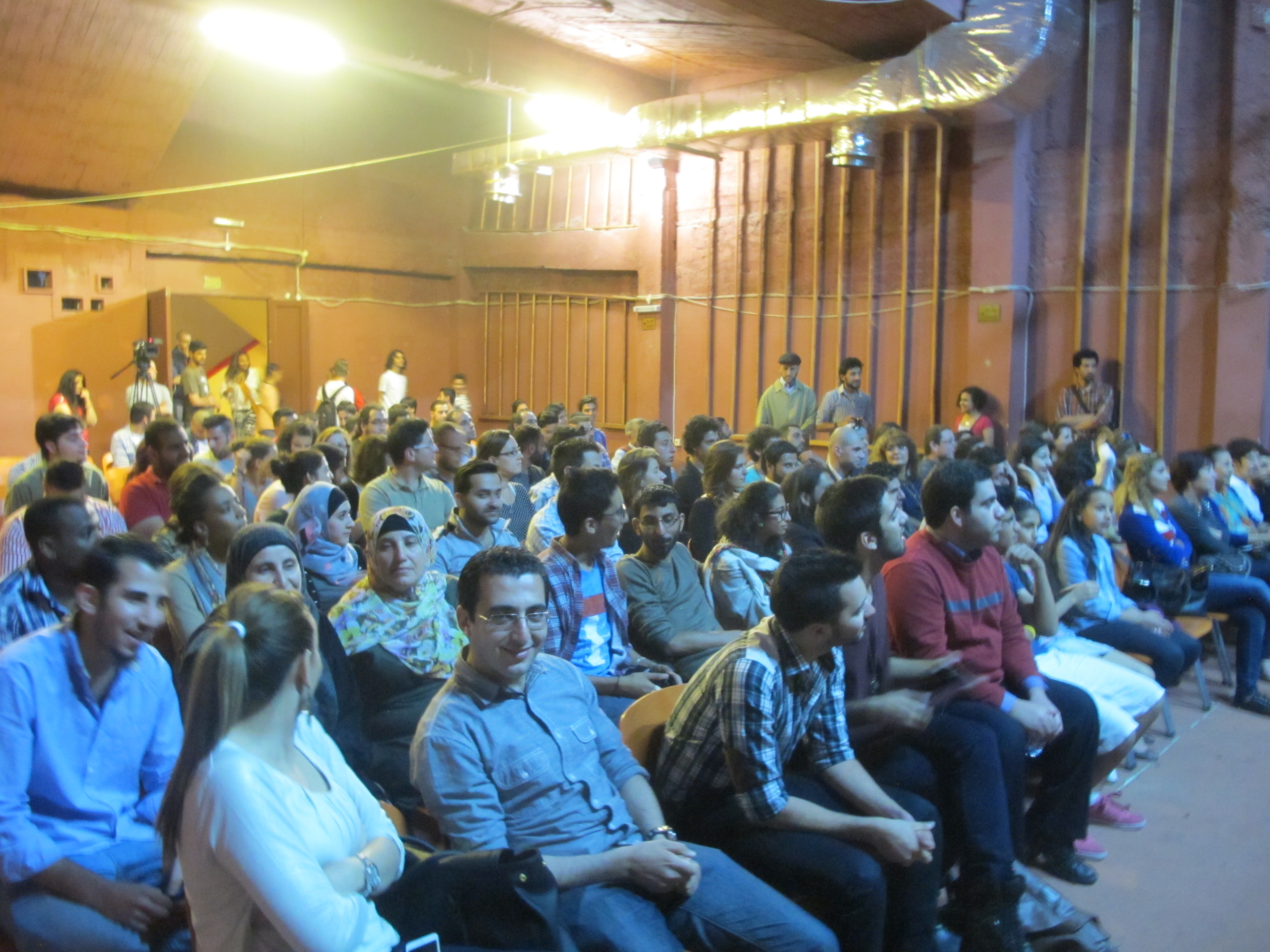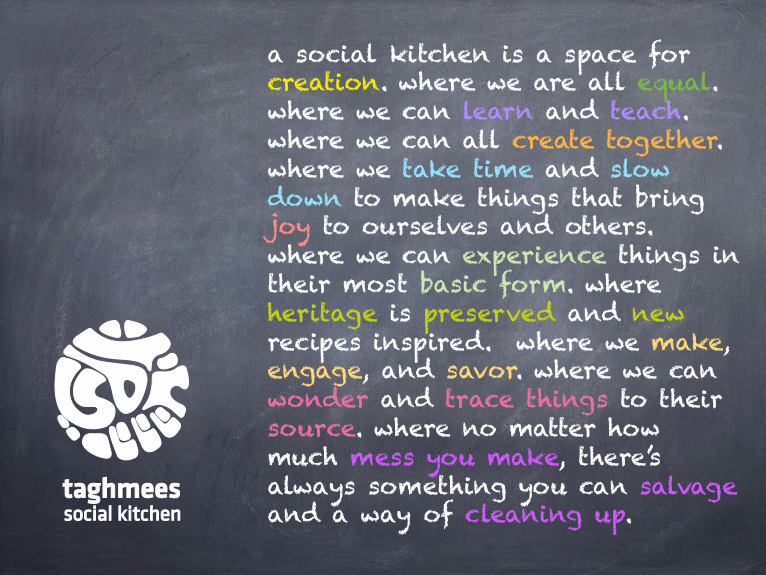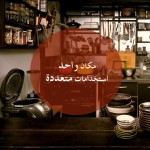بعد لقاء الأمس بعرض “مش من فراغ” تحول الخوف الى عطش للقاء الأهل وتجدد الأمل بالتعلم. الحضور كان يفوق التوقعات، وحضور محمد الطيب على المسرح بمعية صديقة مصطفى الشلبي كان انغماسا بعمق بقصص من حياتنا تعيش بدواخلنا سمح لها محمد بأن تحلق وتدخل أرواحنا لنعيد التفكير بها ونفهمها ونهضم معرفتها.
الصراحة لا نعرف من أين نبدأ الكتابة، كان يوما تغميسيا من الدرجة الأولى أو مجاورة تغميسية رائعة. لنصل الى ٤/٢٢ كان هناك رحلة ضمت العديد من الأهالي. تعرفنا على محمد الطيب في شهر تشرين ثاني عام ٢٠١٣ عندما حضر برفقة صديقة العزيز مصطفى الشلبي لحضور أول تغميسة لهم، كان عمرهما ١٦ سنة مليئين بالطاقة والحيوية والضحك والأمل، وبنفس الوقت كانت تغميساتنا مازالت في بداياتها، تكتشف خطواتها رويدا رويدا.
كانت جلسة مميزة إنغمسنا فيها بروح تغميس، والنقاش كان صريحا لدرجة إننا وبرفقة مجموعة من الأهل لم نرغب لهذا النقاش بأن ينتهي أو بأن نترك بلكونة “مكان” في جبل اللويبدة. بكل عفوية جلسنا بالقرب من بعض نستمع الى قصصنا وندفي أنفسنا من برد أول الشتاء. قبل ساعات من هذه الجلسة كنا أغراب ولكن حميمية النقاش والمكان جعلتنا أقرب الى بعض.
في تلك الجلسة عرّفنا محمد على حسن، ووقف أمام الكل متحمسا على النقاش وسألنا “بتحبوا تشوفوا مسرحيتي اللي عم بشتغل عليها، مدتها ٥ دقائق بس والله ما بطول “، بنفس اللحظة التي وقف فيها محمد سرق إنتباه الكل ولمدة ال٥ دقائق كنا كلنا نسمع ونرى قصة حسن. في تلك اللحظة شعرنا بان حسن موجود داخل كل شخص منا بكل تناقضاته، بقهره والقهر الممارس عليه.
كما ذكرت رند من أهالي تغميس في النقاش، بدأ محمد بكتابة قصة حسن قبل حوالي عام، أخبرها عن قصص سمعها وأثرت فيه وكان يوم العرض بمثابة الإحتفال بتحقيق الحلم والأمل بأشياء جميلة قادمة. لقد عشنا مع محمد وهو يجمع قصص مسرحيته, بدأ محمد يعيش حياة تغميس ليتعلم عن الحياة ويستخدم ما تعلمه لينسج حياة حسن ويقدمها بالعرض “مش من فراغ”. بدأت البروفات ويوم ٤/٩ تم تحديد موعد المسرحية، استمرت البروفات بشكل يومي تقريبا، كل يوم كان مليئا بالتعلم، انضم الينا العديد من الأهل وتقابلنا مع أشخاص رائعين أضافوا الكثير من خبراتهم؛ تناقشنا وإنغمسنا وتعلمنا.
بكل تألق وبراعة، عرض لنا محمد شخصية حسن، شاب يصارع بين عالميه الداخلي والخارجي باحثا عن مساحة له ليعيش حقيقته. من الخارج يعيش الحياه التي إختارها له المجتمع، ومن الداخل خسر روحه وصارع وتعب فقط ليلبي كل ما هو مطلوب منه. قصته تقدم لنا أشكالا مختلفة من العنف والصمت والقهر وتتركنا برسالة للبحث عن الأمل.
هنالك شعور بالفخر لكيف تم تقديم قصة حسن ولوجودنا معه، وهذا الفخر يعود لمحمد الطيب وكل من وقف معه لتقديم هذا العرض المسرحي الإجتماعي. بشغفه أعطى لتغميس بعدا جديدا وكان جميلا بأن نخلق مطبخا إجتماعيا بشكلا جديدا، فشكرا حموده لهذه التجربة التعلمية الرائعة ولكسر حاجز الصمت.
من هذا العرض المسرحي تعلمنا الكثير وبأهمية إدراكنا لكل ما هو حولنا لنخرج بأشياء جميلة نتعلم منها. من أبسط الأشياء نستطيع أن نفعل الكثير، كل ما نحن بحاجة اليه هو إيماننا بأنفسنا وبقربنا إلى بعض ومعرفة كل واحد منا بما يُحسن. نحتاج الى أن نصحى من غيبوبتنا ونحمي ما هو موجود لدينا.
شكر خاص لمسرح البلد وفريقه الرائع، رائد ورزان ولبنى وقابيلا ومعاذ لدعمهم لهذا العرض وإعطاء الفرصة لموهبة محمد لتنمو وليعيش حلمه على المسرح.
وأيضا شكر كبير ليامن عمر، فيصل العزه، أحمد زكي، لبنى خريس، خميس، عبد، بلال حياري، بكر جابر، مراد خواجا، الخالة ماغي، رهف أبو ضحى وكل من كان خلف الكواليس وأعطوا الوقت من حياتهم ليرى هذا العرض النور، وأيضا للعائلة والأصدقاء وأهل تغميس الذين جاؤوا باكرا وساعدوا بالتحضيرات.
ولا ننسى أهل طمي وتعليلة لمشاركتهم روح الكرم والمجتمع معنا، شيء يفوق الجمال.
وأخيرا وليس آخرا كل الشكر لمن جاء ليسمع قصة حسن ولمن كان جزءا من النقاش. من الصعب أن نتحدث عن أشياء حقيقة في حياتنا ومؤلمة في مواقف عامه وبنفس الوقت نرى حسن بداخل كل شخص منا ونرى شخصيات حسن المختلفة التي نخلقها بالمجتمع. تحية وإحترام لكل من تجرأ وشاركنا قصصه وكل من كان جالسا ليسمع ولكل من يريد إن يكمل المشوار بهز عرش الصمت.
We got to know Mohammed Tayyeb last November, when he and his friend Mustafa Al Shalabi came to their first Taghmeeseh. They were sixteen and brimming with life, laughter, and hope, among other things. Our community learning experiment was similarly young, and we were all like toddlers treading water by instinct.
It was a special evening, as we immersed ourselves in sharing and self-reflection around the heart of Taghmees. I remember our conversation being so open and honest that we, among several ahel, were reluctant to go home and leave the warmth of our gathering. Without any formality, we had squeezed ourselves into a tight circle on Makan’s balcony, silhouetted by the city that is our home. No one would believe that several hours prior to that moment we had been mostly strangers to each other.
That was the same night that Mohammed introduced us to “Hassan” for the first time, when overcome with his passion for acting and finding a willing audience. I have held them both in my heart ever since. It was an impromptu 5-minute performance, as Hassan’s story was still in the writing, barely a sketch, but I had met Hassan so many times in my life that I knew him well. In many ways, I was Hassan; and I was everyone who oppressed him. Seeing him in that moment, my heart ached for all of us and was afraid for all of us from all of us.
Over the months, I have watched Mohammed assemble the nuances of Hassan’s life, as though stitching together a quilt from our community. Like us, he has practiced living taghmees as a medium to learn about the world around him, using his learning to flush out the details of Hassan’s story into a monodrama entitled “mish min faragh” (Not from Nothing).
With brilliance and tact, Mohammed depicted Hassan, a young man struggling between his outer and inner worlds. Struggling to be in a world that does not allow for being. His surface had been molded to fit society’s many frames, leaving his core tormented by what he has lost to meet these demands. His story weaves various forms of violence, silence, and oppression, leaving us with a message to look for hope.
After attending Mohammed Tayyeb’s first performance last night at Al Balad Theatre – with support performance by Mustafa Shalabi – my inner Hassan is content. All I have in my heart is appreciation for the respect with which Hassan’s story was told. I feel fortunate to have been there for its telling, honored to stand by his truth, which is merely a reflection of our collective truth.
This appreciation and respect belongs mostly to Mohammed Tayyeb, and everyone who stood by him as he created this important piece of community theatre. With his passion, Mohammed has taken Taghmees to new depths, and we were honored to be a part of his social kitchen. So thank you, 7moudeh, for this amazing learning experience and for breaking a silence that needs to be broken. In doing so, you brought hope into the world.
Special thanks to Al Balad Theatre and its incredible team – Raed, Lubna, Qabeela, Razan, and Muath – for supporting this performance and providing a young talent like Mohammed with a space to learn to live his dream.
Additional thanks to Yamen Omer, Faisal Zaid Al Azzeh, Ahmad Zaki, Lubna Khreis, Khamees, Abed, Bilal Hiary, Bakr Jaber, Murad Khawaja, Aunty Maggie, Rahaf Abu Doha, all those behind the scenes that took time from their lives to make this show happen, and all family, friends, and ahel that came early and assisted throughout.
Also, thanks to ahel Tammey and Ta3leeleh for continuing to share the spirit of generosity and community with us, you are all beautiful.
Last but not least, thanks to everyone who came out to hear Hassan’s story, and those that stayed for the discussion. It’s difficult to talk about something that is so real and so painful in such a public setting, while at the same time looking at the Hassan within all of us and the Hassans we create in the world. But we appreciate all that braved to share and all those that were willing to listen and all those that may be willing to continue breaking the silence.

